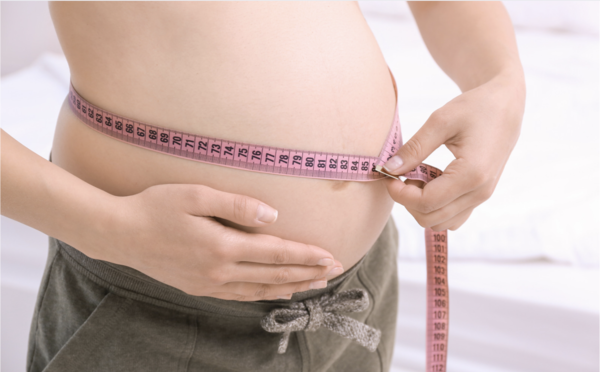Michelle Baynham
04 Dec 2024
Weight Gain During Pregnancy: A Comprehensive Guide
Weight gain during pregnancy is natural and varies greatly, with most women gaining between 10kg and 12.5kg (22lb to 28lb), primarily after week 20. Proper weight management reduces risks for both mother and baby.
Many women reduce activity levels during pregnancy due to discomfort, fatigue, or concerns about overexertion, which can lower their activity multiplier and daily caloric needs. For instance, those moderately active pre-pregnancy may shift to a more sedentary lifestyle.
The UK Chief Medical Officers recommend 150 minutes of moderate-intensity activity per week, including exercises to improve strength and balance on two days. Staying active benefits most pregnant women, reducing risks like gestational diabetes and excessive weight gain. Activities should be tailored to individual comfort and health, with professional advice for those new to exercise or managing specific conditions.
Understanding BMI and Its Role
Body Mass Index (BMI) is a measure of weight in relation to height, routinely calculated at the start of pregnancy. While it doesn’t directly indicate health, a BMI over 30 kg/m² is correlated with higher risks of complications, such as gestational diabetes and pre-eclampsia.
- Healthy BMI range: 18.5–24.9
- Overweight BMI: 25–29.9
-
Obese BMI: 30+
Weight Gain Recommendations by BMI
BMI at Booking | Recommended Weight Gain
- 18.5–24.9 - 11.5–16 kg (25–35 lbs)
- 25–29.9 - 6.8–11.4 kg (15–25 lbs)
- 30+ - 5–9 kg (11–20 lbs)
Important Considerations
- If BMI ≥ 30: Aim for no more than 5–9 kg total weight gain.
- Attempting to lose weight during pregnancy is not recommended, but limiting weight gain may be beneficial for those with higher BMIs.
- Seek medical advice if you have concerns about weight gain.
Energy Needs During Pregnancy (TDEE)
Total Daily Energy Expenditure (TDEE) represents the total calories your body requires in a day, accounting for:
- Basal Metabolic Rate (BMR): Calories needed for basic life functions.
- Thermic Effect of Food (TEF): Energy used for digestion and metabolism.
- Non-Exercise Activity Thermogenesis (NEAT): Energy from non-exercise activities.
-
Exercise Activity Thermogenesis (EAT): Calories burned during exercise.
How to Calculate TDEE During Pregnancy
Use this handy tool to calculate it for you, remember to adjust your activity levels now you are in your pregnancy if they have changed and also add on an extra 200 calories to the total if you are in the last 12 weeks of pregnancy : CLICK
Why Healthy Weight Management Matters
- Gaining too much weight can lead to complications such as:
- Gestational diabetes
- Pre-eclampsia (high blood pressure)
- Increased likelihood of caesarean delivery
- Dieting during pregnancy is discouraged as it may harm the baby’s health.
Conclusion
Weight management during pregnancy is about balance. Focus on maintaining a healthy, varied diet and seeking advice from healthcare professionals as needed. Remember, every pregnancy is unique, and weight gain varies based on individual circumstances.
Sources
- Nutrition.org.uk
- RCOG
- PMC Article on Pregnancy
- NICE Guidance
- NHS Pregnancy Guide
- Kingston Hospital Guide
- UK Chief Medical Officers Guidelines
- British Journal of Sports Medicine summary of CMO recommendations【11】【12】【13】.
Michelle Baynham
Share this article

